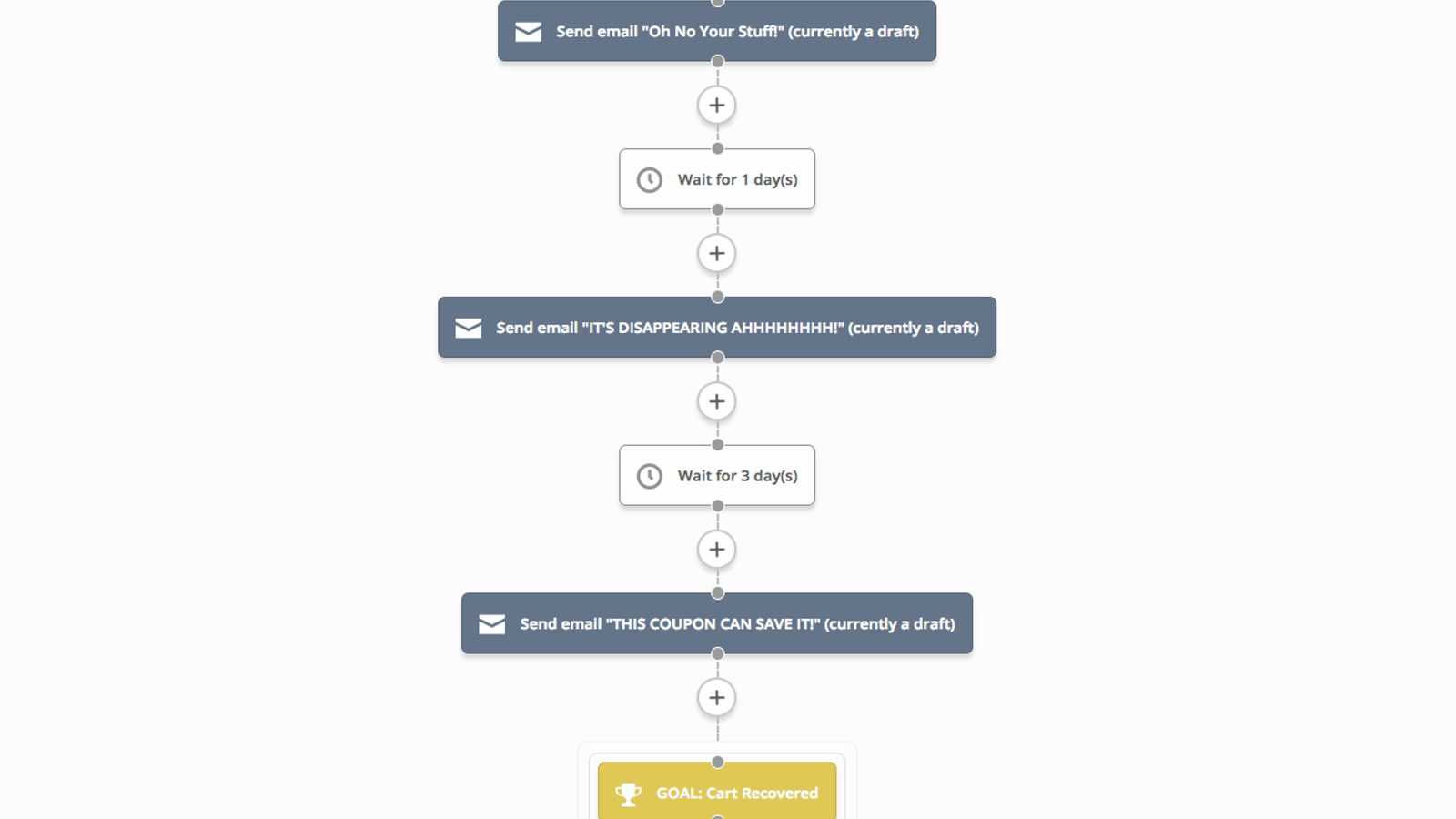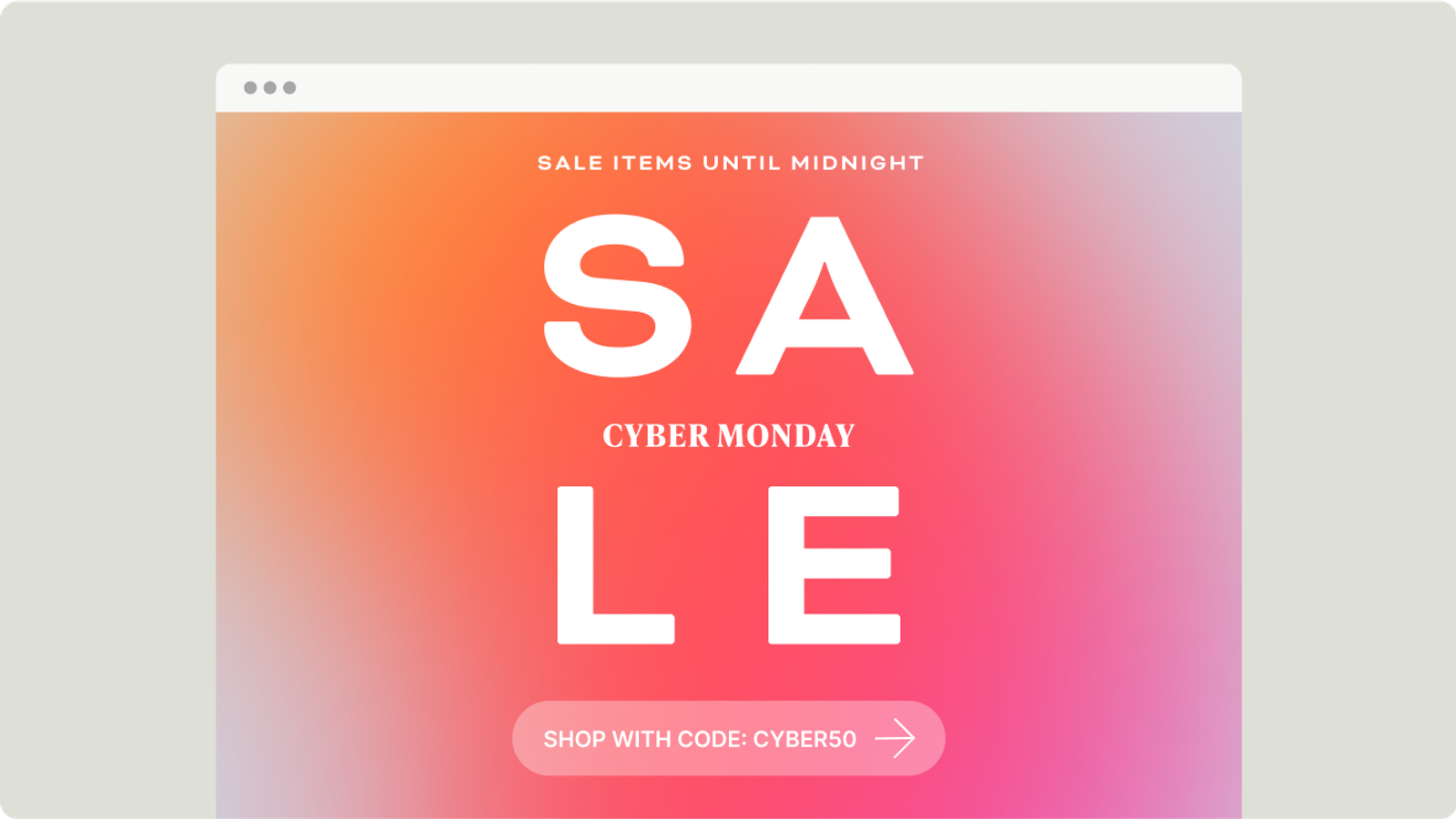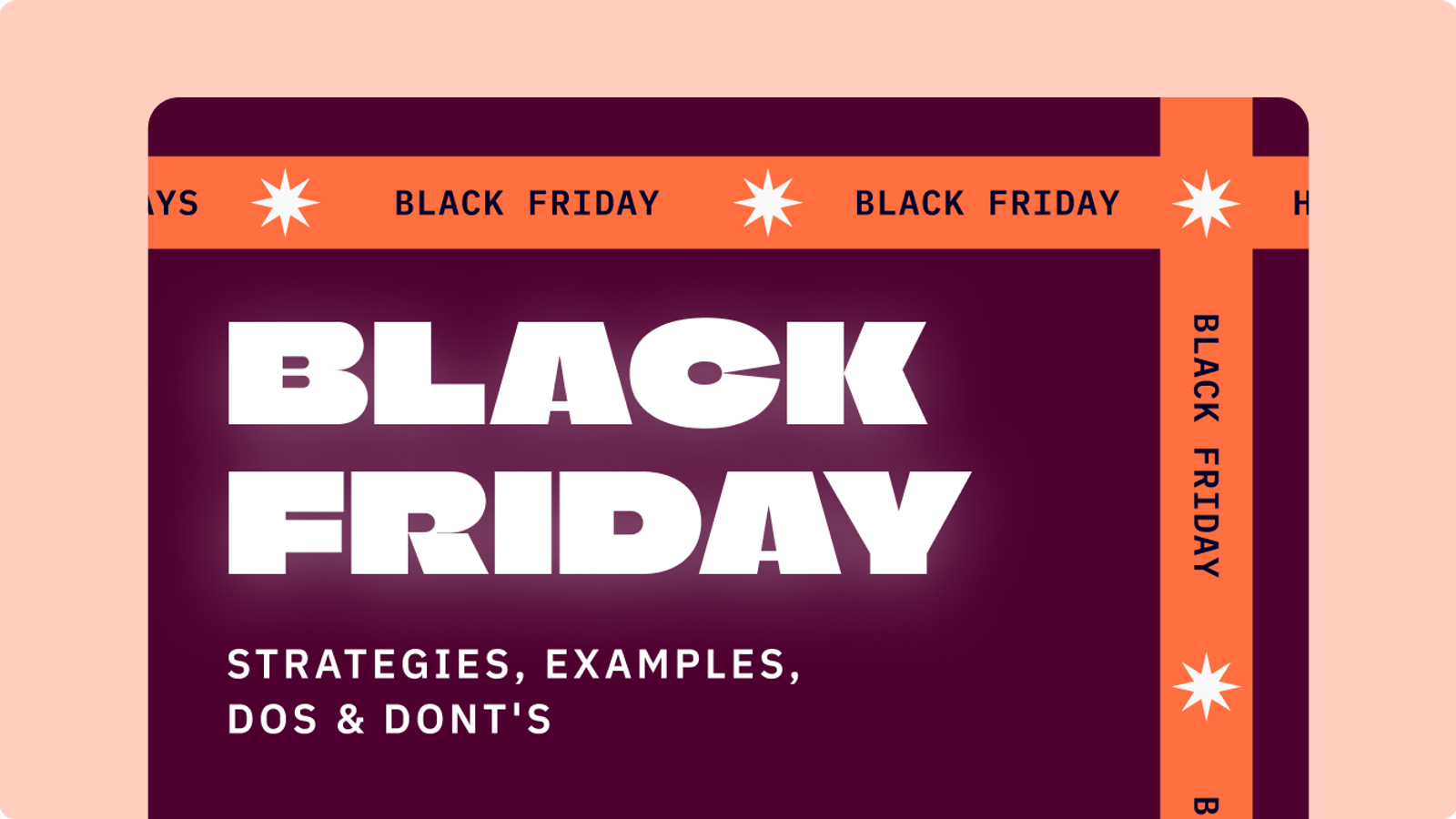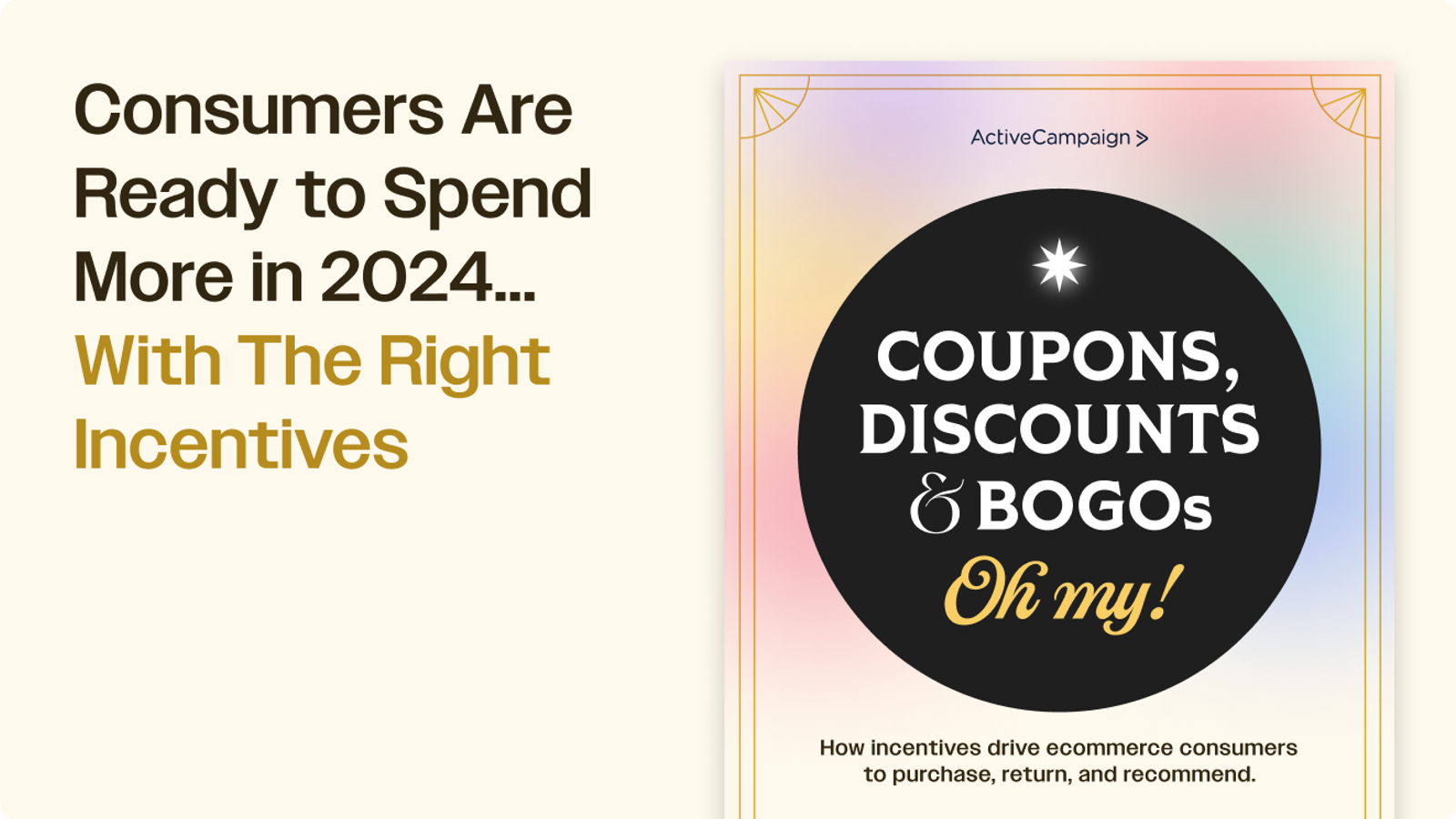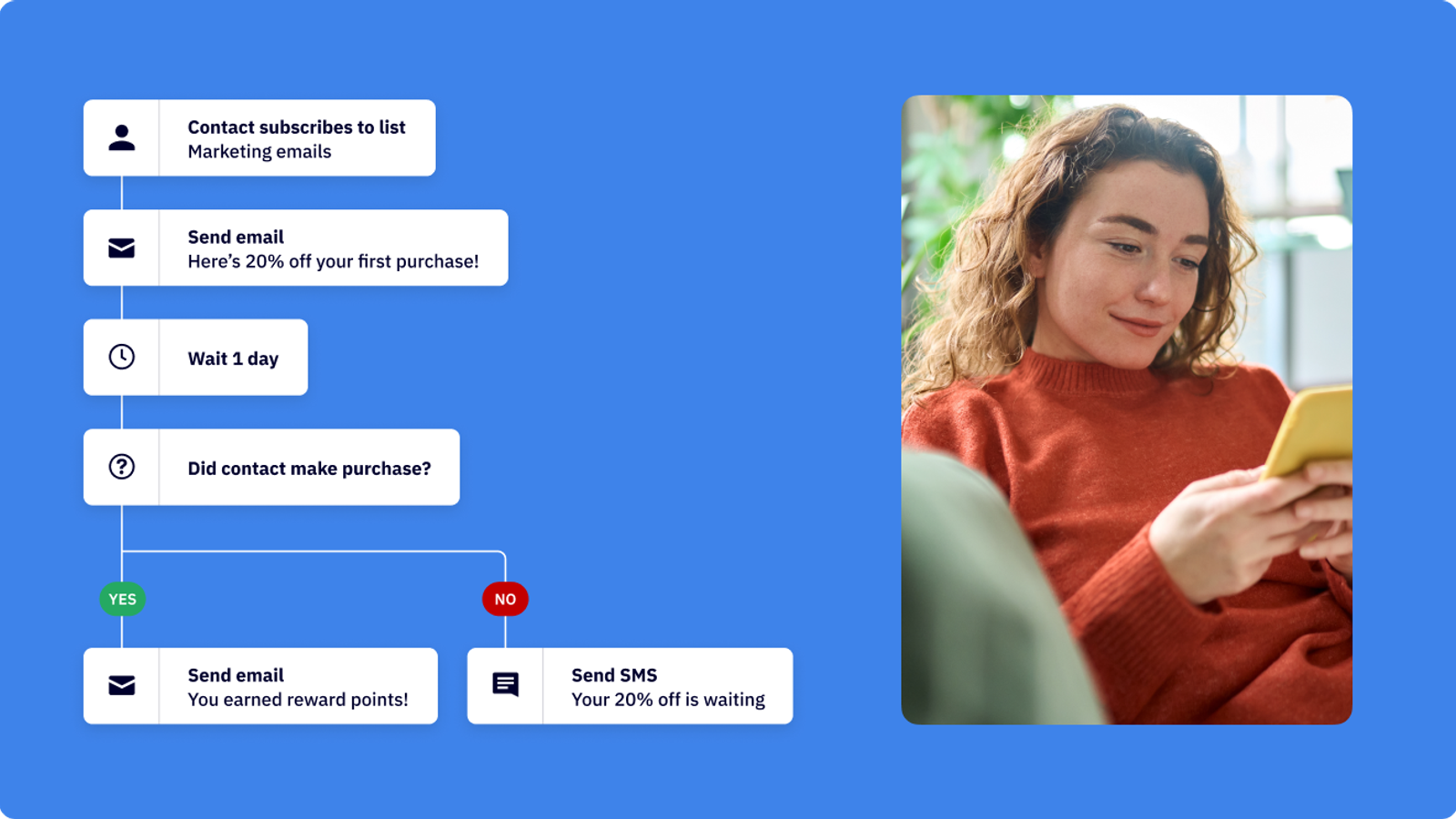77% of online shopping carts are abandoned. That’s more than three-quarters. It’s 6 slices of an 8-slice pizza.
When a website visitor puts an item into their cart, they announce their interest. They tell you that they’re just a single step away from buying—but there are a lot of things that can go wrong before that single step.
Why do customers abandon carts?
- Distractions
- They forget they have a cart
- Price
- Comparison shopping
- They were just browsing
- Confusion
- They changed their mind
- Barriers to checkout
Abandoned cart emails are a super effective way to improve cart recovery and sales. Research from Moosend shows that abandoned cart emails have an average open rate of 43%. The average clickthrough rate is 21%. Half of those people make a purchase.
That means that a single abandoned cart email could convert 10% of the people it’s sent to into customers.
But what if you sent more than one?
Nowadays, a single abandoned cart email is table stakes for ecommerce. If you don’t prompt people to recover their carts, you’re basically leaving money on the table.
At the same time, there’s a lot to be said for sending more than one email.
If you exist in the world, you know that it’s easy to miss an email. (If you don’t exist in the world, please find me and explain how you’re reading this).
Inboxes are crowded. People are busy. Abandoned cart emails are effective, but a 43% open rate still means that 57% of people aren’t opening them.
An abandoned cart series of more than one reminder email gives you more chances to reach people. It lets you try a few different ways to persuade them, and provides opportunities to make additional offers.
Try it now, for free
Black Friday, Cyber Monday, and Small Business Saturday are huge opportunities – don’t miss the chance to make the most of these holidays for your business. The ActiveCampaign Holiday Marketing Toolkit has what you need to make this year's holiday season your most successful (and least stressful) ever. Access here!
A 3‑email abandoned cart series to recover customers
Using multiple abandoned cart emails gives you more opportunities to win back some customers.
It also means you can try a few different tactics to improve cart recovery.
- Experiment with the timing of abandoned cart emails
- Use loss aversion
- Use social proof
- Fun personality
- Product shots
- Coupon codes
Not every potential customer responds to the same message. Multiple emails give you more chances to resonate, even if the automation is really simple.
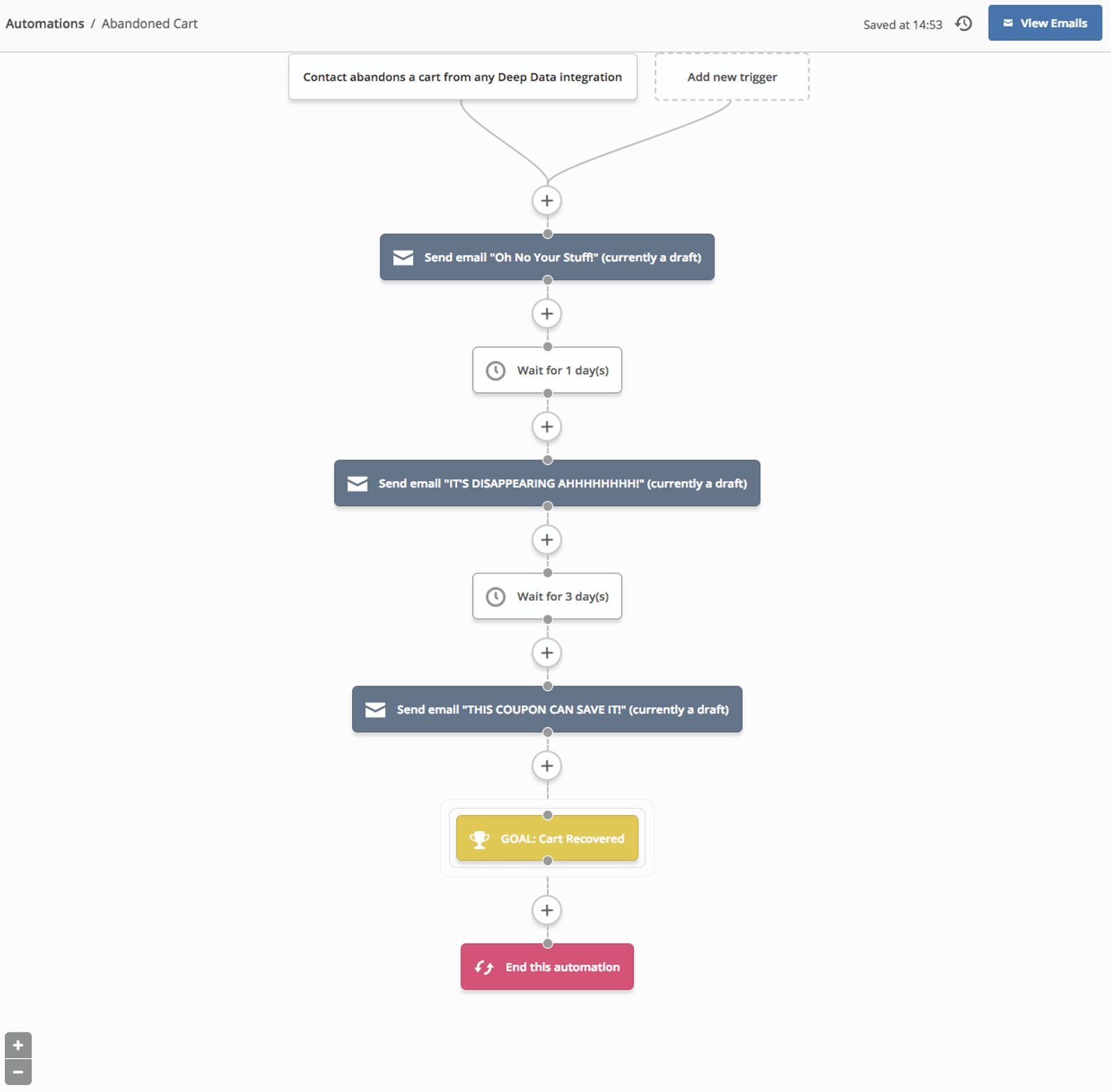
Simple, but effective
I recommend a three-email abandoned cart series to help you recover customers. Each email has a different goal, different timing, and a different thing to test.
Email 1: The one-hour email
Your potential customer got distracted. Your checkout was confusing. They left to go comparison shop.
For some reason, they left their cart behind. The faster you can get them to recover, the more likely you are to get them to buy.
The one-hour email is your first line of defense once a cart has been abandoned.
Can you guess how long you should wait before sending it?
If you guessed “one hour,” you might just be a pretty smart cookie.
Following up quickly is important.
What should go into the one-hour email?
- A simple reminder
- Product shots
- A single call to action=
In this first email, there’s no need to get fancy. It’s tempting to throw in related products, coupons, or some kind of jazzy image. Because this is an abandoned cart series, you’ll have time for that stuff later—right now, you just need to remind them of what they’re missing.
Loss aversion is a strong tactic to use for this first abandoned cart email. Check out this example from Sumo.
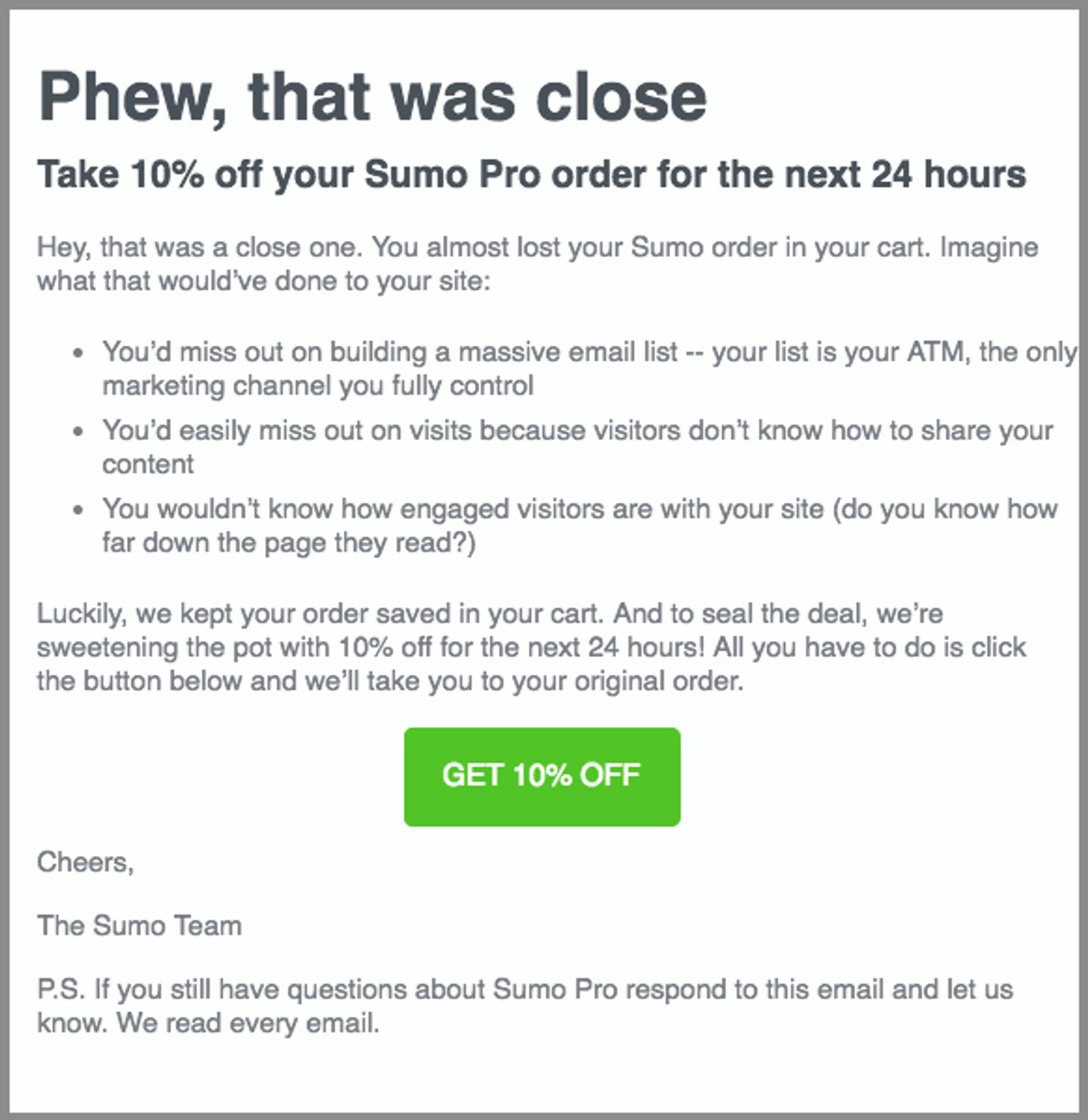
Source: Sumo, via Copy Hackers
Instead of just reminding you of the benefits of their product, Sumo really makes you feel the pain of missing out on its benefits.
Loss aversion is a powerful psychological principle. It doesn’t always have positive effects, especially if overused, but abandoned cart emails are one of the best times to use it.
I recommend trying it out in your one-hour email.
If you’ve got good images of your product, toss those in as well. Seeing the product is a powerful reminder of its benefits, and can activate loss aversion all on its own.
I’ll leave you with this example from Dollar Shave Club.
Email 2: One day later
You know the movie 28 days later? Well this next email is comin’ at you 24 hours later.
There are a lot of reasons someone might have missed the 1 hour later email. Maybe they left work, and you have their work email. Maybe they were in the middle of other stuff. Maybe they were shopping at night, and just went to sleep!
In walks email two.
With email two, you start to have some more possibilities.
- Did someone open your first email, but not convert? Play with the email content.
- Did someone fail to open your first email entirely? Consider re-sending your first email with a different re-engagement subject line?
I’ll assume for the moment that your customer opened your first email, but didn't convert. Either way, it’s easy to set up your automation to treat openers and non-openers differently.
If someone saw your first abandoned cart email but wasn’t convinced, it’s time to switch up your tactics. Simple reminders, loss aversion, and product shots weren’t playing? Time to take it to the next level.
Here are a few things you might consider trying:
- Social proof in the form of customer testimonials
- Highlighting a different benefit
- Offering a guarantee to reduce risk
Take a look at how Dollar Shave Club uses a guarantee to make their offer less risky.
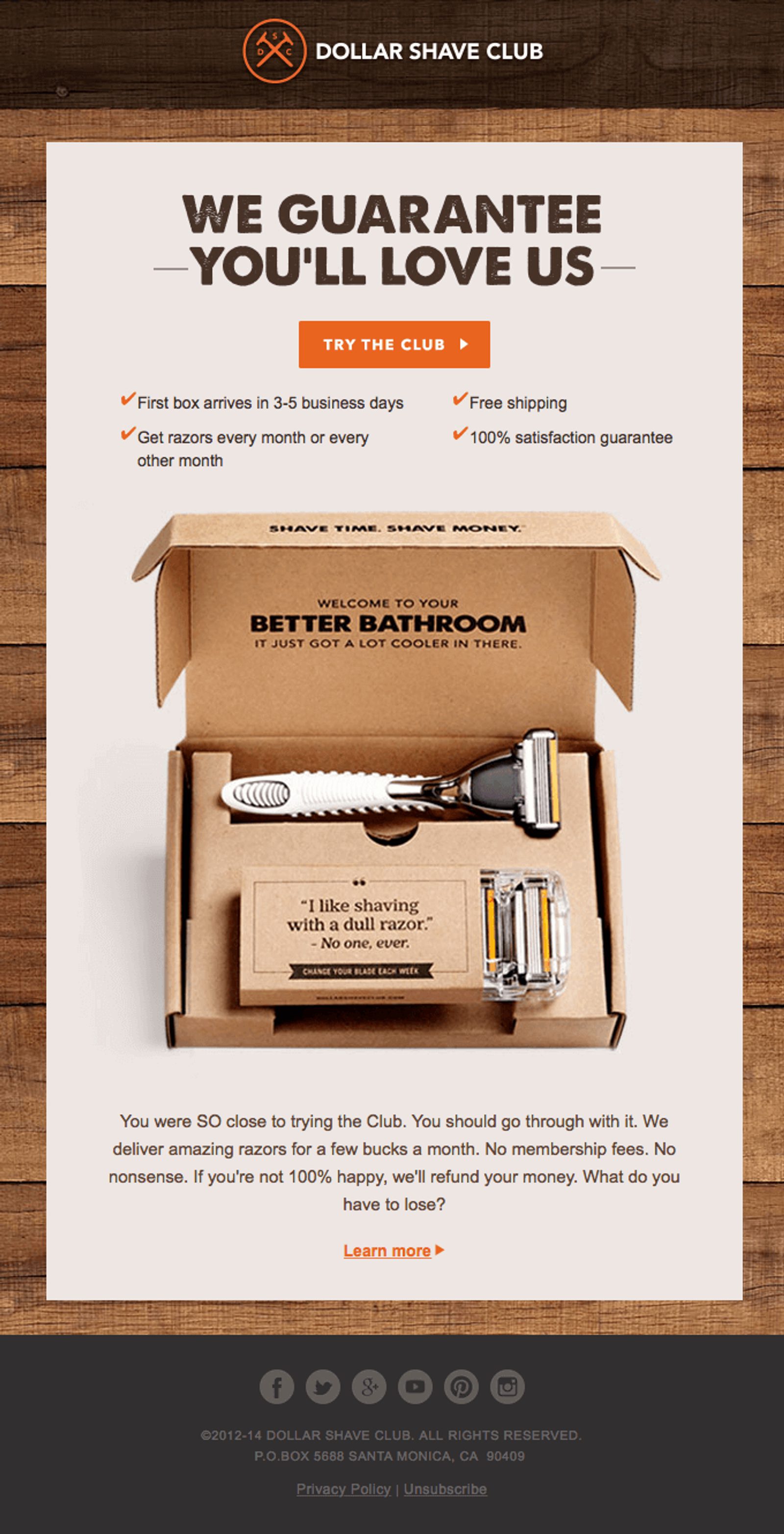
Source: Dollar Shave Club, via Really Good Emails
Any time anyone considers a purchase, there’s a crucial doubt floating around in their head: “What if this doesn’t work?”
Social proof and a refund guarantee make trying out your product a no-brainer. If loss aversion and benefits weren’t enough, this second email might be able to get the conversion.
Email 3: 3-5 days down the line
Well. Here we are. Still no customer.
Your visitor has gotten TWO reactivation emails and still hasn’t become a customer. 3-5 days later, it’s time to follow up one more time.
Why is this the last email in the abandoned cart series? Why not keep sending more and more emails until your contact succumbs to your mighty powers of persuasion (or unsubscribes)?
Chances are, if someone abandons a cart and ignores three abandoned cart emails, they’ve decided against making a purchase. Whether they weren’t all that interested in the first place or decided to go another direction, you don’t want to keep spamming them...or they might mark your emails as spam.
But before you give up, you’ve got one last trick up your sleeve.
An abandoned cart coupon.
Coupons can be tricky. You don’t usually want to put a coupon earlier in your abandoned cart series, because people will quickly learn that abandoning their carts is a quick way to save a few bucks.
If you use coupons too aggressively, you train people to wait for sales before buying.
But after 3-5 days, you’ve probably converted all the people who were super duper interested in your products. A 10-15% off coupon might just be enough to send some of the other over the edge.
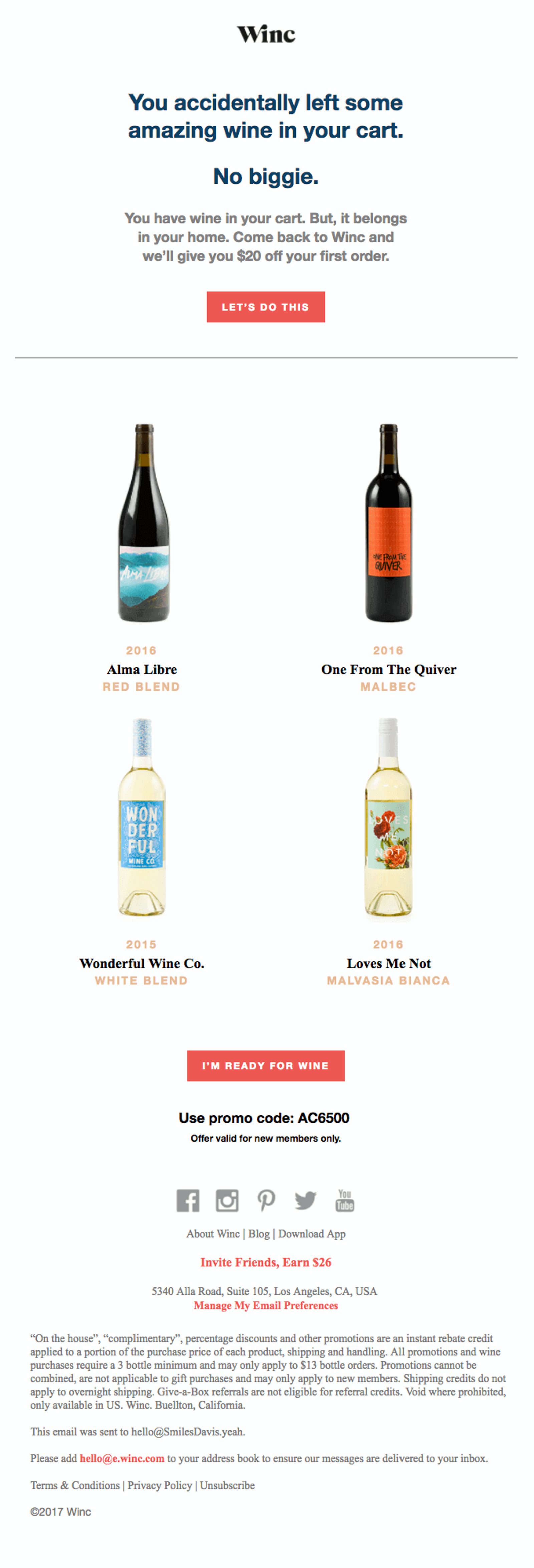
Source: Winc, via Really Good Emails
Winc offers $20 off for new members who abandon their carts. This is a clever way to increase first-time buyers (the first step in getting repeat business), without encouraging repeat customers to game the system by abandoning their carts.
Because this is the final email, it’s another good time to sprinkle in a bit of loss aversion. This loss aversion has one of the most powerful marketing drivers behind it—it’s true. Because this is the last email, it really is your prospect’s last chance to get the product they abandoned.
Offer them a coupon. Put a time limit. Tell them to grab up their products before they disappear.
Conclusion: Use Goals to track results and reward customers
If someone recovers their cart after one email, you probably don’t want to keep sending them abandoned cart emails. You can use a goal step to prevent people from getting emails that aren’t relevant to them.
When a contact recovers their cart, a Goal step will track their success. You might consider sending a different thank you email to people who successfully recover their carts.
Here’s some silly copy thought up by my Friday-afternoon brain.
“Phew! It was touch and go there for a while. The distraction gremlins of the Internet almost whisked your cart into the ether...net – but you managed to steal it back. Here’s a 15% off coupon for your next purchase, in honor of your victory.”
Once someone recovers an abandoned cart, they’re a customer. And you can use the information you have to strategically target them with upsells, cross-sells, and relevant offers.
All because you decided to keep pushing after the first email failed.

